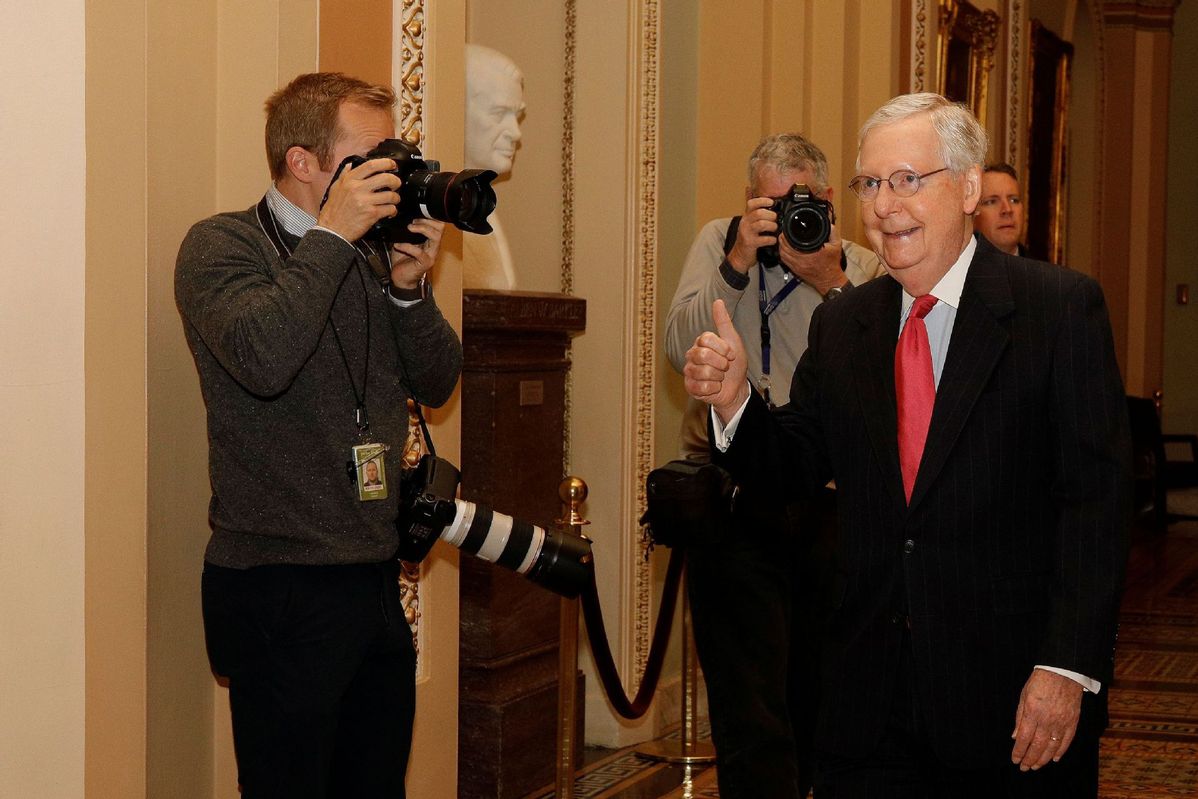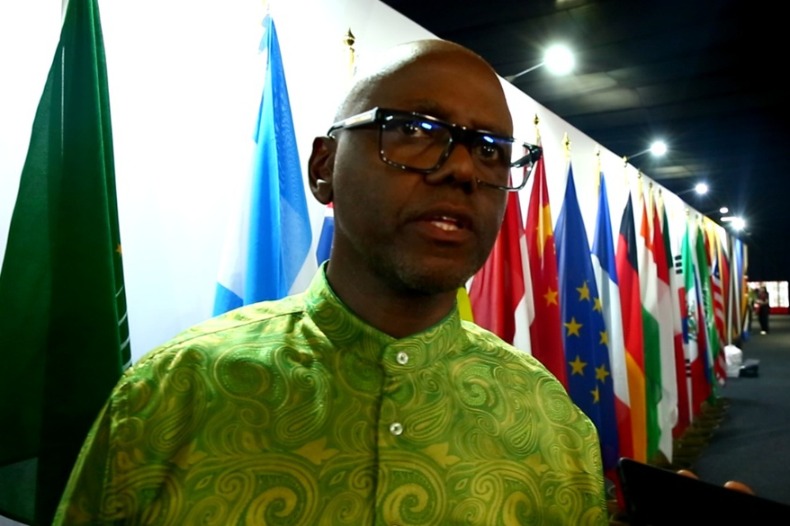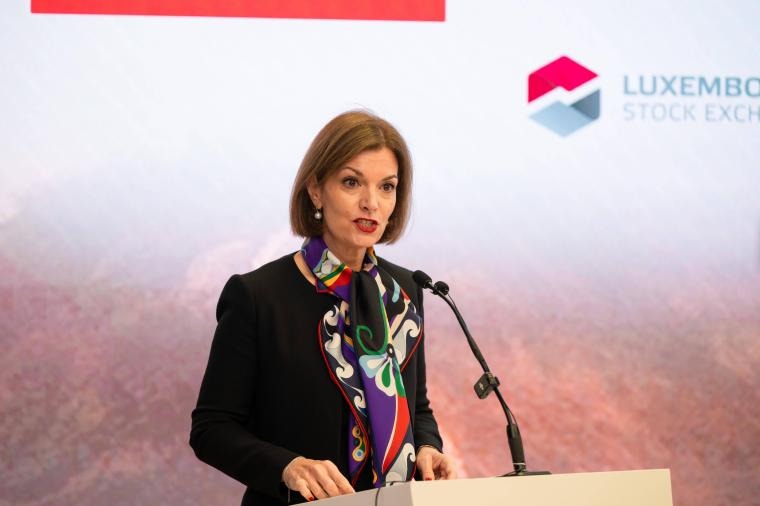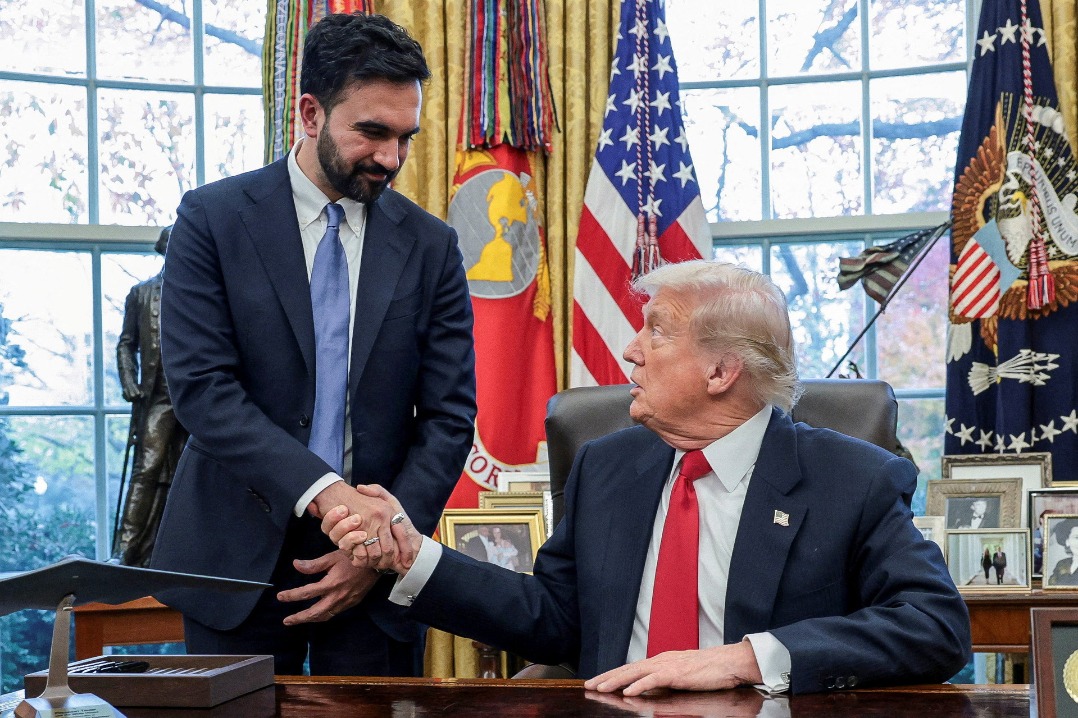Senate poised to vote on $2t relief bill


The US Senate was poised Wednesday to vote on a $2 trillion relief package for an economy bludgeoned by the coronavirus pandemic, but the vote was delayed over Republican objections to unemployment provisions in the bill.
Treasury Secretary Steven Mnuchin, who has led negotiations on behalf of the White House, said he had spoken to President Donald Trump about the agreement and that Trump would absolutely sign it as it is currently written.
But some Republican senators argued that the measure could result in some workers getting more in unemployment payments than their regular wages and said they would block a vote until their concerns were addressed.
That sparked Senator Bernie Sanders, a Democratic presidential candidate, to threaten to block the bill for being too lenient on corporations if the Republicans didn't withdraw their threat.
"This is a wartime level of investment into our nation," said Senate Majority Leader Mitch McConnell early Wednesday, after the two sides reached a deal. "The men and women of the greatest country on Earth are going to defeat this coronavirus and reclaim our future."
After Senate passage, the bill goes to the House of Representatives for a vote and then to Trump's desk for signing.
The Democratic-controlled House is in recess, so Speaker Nancy Pelosi is expected to attempt to quickly pass the bill by unanimous consent, which enables the chamber to approve the legislation without lawmakers being present to vote.
New York Governor Andrew Cuomo, whose state is at the epicenter of the US outbreak, said Wednesday morning at his daily news conference that state measures to control the coronavirus appear to be working as the rate of hospitalizations has slowed in recent days.
"Now that is almost too good to be true," he said. "This is a very good sign and a positive sign, again not 100 percent sure it holds, or it's accurate, but the arrows are headed in the right direction."
He also noted that in Westchester County, just north of New York City, the rate of infection has slowed.
"That was the hottest cluster in the United States of America. We closed the schools, we closed gatherings, we brought in testing and we have dramatically slowed the increase," Cuomo said.
He also announced the latest coronavirus figures for the state and the city: The state has 30,811 confirmed cases, up more than 5,000 since Tuesday morning, with more than 17,800 in New York City alone.
The state has reported 285 deaths and roughly half the country's reported infections. More than 3,800 people are hospitalized in the state, or 12 percent of all confirmed cases. Of those, 888 people are in intensive care.
The US death toll was at 849 Wednesday afternoon after eclipsing 600 on Tuesday, according to data from Johns Hopkins University.
Cuomo's breakdown on confirmed cases came the morning after federal officials, alarmed over the infection rate in New York City, urged anyone leaving the city to quarantine themselves for 14 days before mingling with the general population elsewhere.
Dr Anthony Fauci, director of the National Institute of Allergy and Infectious Diseases, said that New Yorkers who were "understandably" trying to leave for places like Florida needed to make sure they were not "seeding" the rest of the US.
"When they go to another place, for their own safety, they have to be careful," Fauci said.
The governor said that the state now has 15,000 ventilators, including 4,000 sent by the federal government. While that's significantly higher than the 4,000 it had weeks ago, it's still only half of the estimated 30,000 ventilators needed, he said. "This is our single greatest challenge," Cuomo said.
He also said he is increasing capacity to up to 140,000 beds and is acquiring needed equipment.
"We're looking at hotels. We're looking at former nursing homes, converting other facilities to make up the differential," Cuomo said.
The governor criticized the $2 trillion stimulus deal, saying it would be "terrible" for New York. He said the state would only be able to use $3.8 billion from the package to bridge a far-larger virus-related budget gap.
































